UnitedHealth Group looms large in the healthcare landscape, consistently ranking among the world’s biggest companies by revenue. However, unlike its traditional insurance counterparts, UnitedHealth operates as a multifaceted healthcare entity. It’s not just about offering health plans; it’s a two-pronged behemoth with a reach that extends far beyond simply providing financial coverage. UnitedHealth operates through two distinct but interconnected arms: UnitedHealthcare, the insurance and managed care giant, and Optum, a sprawling division focused on technology-driven health services and care delivery. This unique structure allows UnitedHealth to approach healthcare from both the financial and service sides, granting them a position of significant influence across the entire industry.
UnitedHealthcare: The Breadth of Insurance Offerings
UnitedHealthcare is the bedrock of the company, offering a comprehensive suite of health benefit plans catering to a diverse range of needs. Here’s a breakdown of its core divisions:
- UnitedHealthcare Employer and Individual: This division focuses on providing health benefit plans and services for large national employers and individuals seeking private insurance.
- UnitedHealthcare Medicare and Retirement: As the name suggests, this arm caters specifically to individuals aged 65 and older, offering health and well-being services tailored to the needs of this demographic.
- UnitedHealthcare Community and State: This division plays a vital role in serving state-sponsored programs that care for the underprivileged, medically underserved, and those who lack employer-sponsored health insurance. It delivers healthcare services in exchange for a monthly premium per member from the state program.
Optum: Innovation Beyond Insurance
While UnitedHealthcare tackles the financial aspects of healthcare, Optum ventures beyond traditional insurance. It’s a sprawling division that leverages technology and data analytics to revolutionize healthcare delivery. Optum’s reach extends across various sectors:
- OptumHealth: This branch provides a health services business serving a wide range of healthcare stakeholders, including payers (insurance companies), care providers (hospitals, doctors), employers, government agencies, and even life sciences companies.
- OptumInsight: This arm focuses on data and analytics, offering insights and tools to improve healthcare decision-making and optimize patient care.
- OptumRx: Specializing in pharmacy benefits management, OptumRx helps manage prescription drug costs and ensures patients have access to the medications they need.
The Synergy Between Insurance and Services
The true power of UnitedHealth lies in the synergy between its two arms. By having a foot in both the insurance and service sides of healthcare, UnitedHealth gains a unique perspective and significant influence. For example, data collected by Optum can be used by UnitedHealthcare to develop more targeted and cost-effective insurance plans. Additionally, Optum’s healthcare delivery services can be seamlessly integrated with UnitedHealthcare plans, creating a more streamlined and potentially more affordable experience for patients.
This comprehensive approach to healthcare positions UnitedHealth as a major player in shaping the future of the industry. The company’s ability to navigate both the financial and service aspects of healthcare allows them to drive innovation, potentially improve patient outcomes, and wield significant influence over how healthcare is delivered and financed. However, the company’s vast size and influence also raise concerns about potential conflicts of interest and its market dominance within the healthcare ecosystem.
Top Competitors and Alternatives of UnitedHealth
Here are some of UnitedHealth Group’s top competitors, categorized based on their areas of competition:
Health Insurance Providers:
1. Aetna
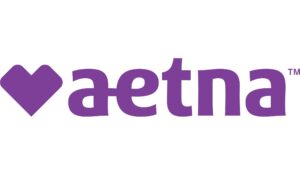
Website: https://www.aetna.com/
Aetna and UnitedHealth Group are health insurance giants, battling for dominance in the marketplace. Both offer a variety of health plans, including employer-sponsored insurance, Medicare Advantage plans, and individual plans. This competition drives innovation and keeps plan options diverse for consumers.
Here’s a look at how Aetna directly competes with UnitedHealth Group:
| Feature | Aetna | UnitedHealthcare |
|---|---|---|
| Plan Offerings | Employer-sponsored, Medicare Advantage, Individual & Family plans | Employer-sponsored, Medicare Advantage, Individual & Family plans |
| Network Options | Broad provider networks, regional variations | Extensive provider networks, may vary by location |
| Focus Areas | Strong presence in Medicare Advantage, value-based care initiatives | Large national footprint, diverse plan options |
| Cost | Premiums can vary depending on plan and location | Premiums can vary depending on plan and location |
Both companies emphasize different strengths. Aetna shines in Medicare Advantage plans and value-based care approaches, while UnitedHealthcare boasts a wider national reach with a larger network of healthcare providers. Choosing between them depends on your specific needs, location, and desired plan features.
2. Elevance Health (formerly Anthem)
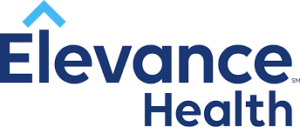
Website: https://www.elevancehealth.com/
The health insurance landscape sees Elevance Health (formerly Anthem) as a major competitor to UnitedHealth Group. Both are titans of the industry, boasting over $10 billion in revenue and employing more than 10,000 people each.
As of October 2022, Elevance Health held the lead in terms of medical coverage members, surpassing UnitedHealthcare’s numbers. However, this lead excludes BlueCard members within UnitedHealthcare’s count. Additionally, Elevance Health reigns supreme in market share within 22% of MSA-level markets, showcasing its regional strength. Meanwhile, UnitedHealth Group stands out as one of the industry’s largest pharmacy benefit managers. This competitive dynamic benefits consumers by fostering innovation and keeping plan choices diverse.
Here’s a breakdown of how Elevance Health directly competes with UnitedHealth Group:
| Feature | Elevance Health | UnitedHealth Group |
|---|---|---|
| Plan Offerings | Employer-sponsored, Medicare Advantage, Individual & Family plans | Employer-sponsored, Medicare Advantage, Individual & Family plans |
| Network Options | Strong regional networks, affiliated with Blue Cross Blue Shield Association | Extensive national networks, may vary by location |
| Focus Areas | Growing presence in Medicaid and government-sponsored programs | Large national presence, diverse health and wellness solutions |
| Strengths | Competitive pricing, focus on preventive care | Strong financial performance, diversified health offerings, industry-leading pharmacy benefits management |
While both offer similar plans, some key differences exist. Elevance Health boasts a strong regional presence through Blue Cross Blue Shield affiliations, while UnitedHealth Group leverages a wider national reach. Additionally, Elevance Health is making strides in Medicaid and government-sponsored programs, whereas UnitedHealth Group focuses on broader health and wellness solutions, including industry-leading pharmacy benefit management. Choosing between them depends on your location, desired network access, and the specific features you prioritize in a health insurance plan.
3. Humana

Website: https://www.humana.com/
Humana and UnitedHealth Group are titans in the health insurance industry, vying for dominance in the US market. Both offer a comprehensive suite of coverage options, including dental, vision, employer-sponsored plans, Medicare Advantage, and Medicaid. However, UnitedHealth Group boasts a broader range of offerings that extend to individual, family, student, short-term, and supplemental insurance plans, catering to a wider demographic.
Despite the coverage disparity, Humana carves out a strong niche with its focus on Medicare Advantage. Ranking as the second-largest provider in this category (behind UnitedHealthcare), Humana excels in member experience. Over 90% of Humana members are enrolled in plans rated 4 stars or above by the Centers for Medicare & Medicaid Services (CMS), showcasing their commitment to high-quality care. This stands in contrast to UnitedHealthcare’s average member experience scores and slightly below-average plan star ratings.
Here’s a breakdown of how Humana directly competes with UnitedHealth Group:
| Feature | Humana | UnitedHealth Group |
|---|---|---|
| Plan Offerings | Medicare Advantage, Medicaid, Employer-sponsored, Dental, Vision | Medicare Advantage, Medicaid, Employer-sponsored, Dental, Vision, Individual, Family, Student, Short-term, Supplemental |
| Medicare Advantage Focus | Strong presence, high member experience scores, high plan star ratings | Largest provider, average member experience scores, slightly below-average plan star ratings |
| Financial Performance | Revenue > $10 billion, Employees > 10,000, Operating Margin (2023): 3.8% | Revenue > $10 billion, Employees > 10,000, Operating Margin (2023): 8.7% |
Ultimately, the choice between Humana and UnitedHealth Group boils down to your specific needs. If you prioritize Medicare Advantage and value member experience, Humana might be the ideal fit. However, if you require a broader range of plan options, including individual or family coverage, then UnitedHealth Group might be a better choice.
4. Cigna
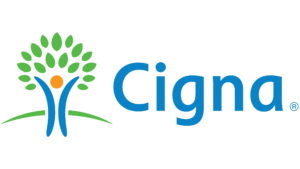
Website: https://www.cigna.com/
Cigna stands as a major competitor to UnitedHealth Group in the vast healthcare insurance market. Both cater to millions of members nationwide, offering a similar range of health insurance plans, including employer-sponsored coverage, Medicare Advantage options, and individual and family plans. This competition drives innovation in the industry and empowers consumers with diverse plan choices. UnitedHealthcare is the largest health insurance company in the United States, with 49.5 million customers, while Cigna has 16 million American customers.
While the plan offerings might seem similar, Cigna and UnitedHealth Group each possess distinct strengths. Cigna shines in specific areas like international health insurance and government-sponsored programs. They also boast a strong focus on wellness and disease prevention initiatives. On the other hand, UnitedHealth Group boasts a wider national presence and a larger network of healthcare providers. Additionally, UnitedHealth Group excels in the pharmacy benefits management (PBM) sector.
Here’s a breakdown of how Cigna directly competes with UnitedHealth Group:
| Feature | Cigna | UnitedHealth Group |
|---|---|---|
| Plan Offerings | Employer-sponsored, Medicare Advantage, Individual & Family plans | Employer-sponsored, Medicare Advantage, Individual & Family plans |
| Network Options | Varied based on plan, some focus on regional networks | Extensive national networks, may vary by location |
| Strengths | International coverage options, focus on wellness and disease prevention | Strong national presence, large provider networks, industry-leading PBM |
Choosing between Cigna and UnitedHealth Group depends on your specific needs and priorities. If you require international health coverage or prioritize wellness initiatives, Cigna might be a better fit. However, if you value a wider national network or require PBM services, then UnitedHealth Group might be a better choice.
Managed Care Organizations (MCOs)
1. Centene Corporation

Website: https://www.centene.com/
While UnitedHealth Group casts a wide net across the health insurance landscape, Centene Corporation carves out a niche as a focused competitor. Both companies offer health insurance plans, but Centene specializes in government-sponsored programs like Medicaid and Medicare Advantage for low-income individuals and those with disabilities. This focus allows Centene to tailor its plans and services to this specific population segment.
Despite the different target audiences, there’s an overlap in Medicare Advantage offerings, creating a competitive dynamic. Here, UnitedHealth Group boasts a larger overall presence. However, Centene excels in specific geographic markets and enjoys strong member satisfaction within its government-sponsored programs. Additionally, Centene demonstrates a commitment to innovation in population health management, aiming to improve health outcomes for its members.
While reviews on Comparably suggest UnitedHealth Group might have a slight edge in pricing, Centene’s competitive advantage lies in its deep experience within government-sponsored programs. With over 30 years under their belt, Centene has become the largest Medicaid managed care organization in the US. They hold a leadership position in key states like California, Florida, New York, and Texas. This expertise translates into affordable and high-quality healthcare products for nearly 1 in 15 individuals across the country. Their reach extends to Medicaid and Medicare members, individuals and families served by the Health Insurance Marketplace, and even the TRICARE program for the military community.
Here’s a breakdown of how Centene Corporation directly competes with UnitedHealth Group:
| Feature | Centene Corporation | UnitedHealth Group |
|---|---|---|
| Target Market | Primarily government-sponsored programs (Medicaid, Medicare Advantage) | Broader market including employer-sponsored, individual & family plans |
| Medicare Advantage Focus | Strong in specific markets, high member satisfaction | Larger national presence |
| Strengths | Expertise in government-sponsored programs, focus on population health management | Strong financial performance, diversified health offerings |
The best choice between Centene and UnitedHealth Group depends on your eligibility and priorities. If you qualify for government-sponsored programs and value a company with experience in that arena, Centene might be a strong fit. However, if you seek broader plan options or a larger national network, then UnitedHealth Group might be a better choice.
Pharmacy Benefit Managers (PBMs):
1. CVS Health

Website: https://www.cvshealth.com/
While CVS Health and UnitedHealth Group operate in the healthcare sector, they target different areas. CVS Health focuses on pharmacy services and retail healthcare clinics, whereas UnitedHealth Group is a health insurance giant. However, there is some overlap that creates a competitive dynamic.
CVS Health competes with UnitedHealth Group by offering convenient and often lower-cost alternatives for specific healthcare needs. Here’s where the competition heats up:
- MinuteClinic walk-in clinics: These clinics offer treatment for minor illnesses and injuries, potentially reducing reliance on traditional doctor visits covered by UnitedHealthcare plans.
- Maintenance medications: CVS Pharmacy competes on price and convenience for refilling prescriptions, potentially influencing where members enrolled in UnitedHealthcare plans choose to fill theirs.
It’s important to note that CVS Health doesn’t directly compete with UnitedHealth Group in health insurance. However, by offering convenient and potentially lower-cost healthcare options, CVS Health can influence how and where members utilize their UnitedHealthcare plans.
| Feature | CVS Health | UnitedHealth Group |
|---|---|---|
| Industry | Pharmacy Retail, Retail Health Clinics | Health Insurance |
| Services | Prescriptions, MinuteClinic walk-in clinics | Health insurance plans (employer-sponsored, Medicare Advantage, individual & family) |
| Competitive Angle | Convenience, potentially lower costs for specific services | Broad health insurance coverage |
2. Elixir (formerly EnvisionRxOptions)
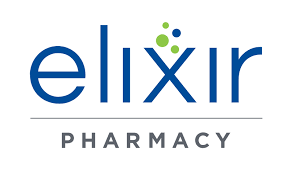
Website: https://www.elixirsolutions.com/
While UnitedHealth Group is a behemoth in the health insurance industry, Elixir (formerly EnvisionRxOptions) acts as a competitor in the specific arena of pharmacy benefit management (PBM). Elixir specializes in managing prescription drug programs for health plans, employers, and government agencies. This translates to negotiating drug prices with pharmaceutical companies, developing formularies (approved drug lists), and processing pharmacy claims.
The competition between Elixir and UnitedHealth Group arises because UnitedHealth Group operates its own PBM arm, OptumRx. Both companies leverage their PBMs to influence drug costs, impacting plan costs for health plans and ultimately affecting members enrolled in UnitedHealthcare plans.
Here’s a breakdown of how Elixir competes with UnitedHealth Group:
| Feature | Elixir | UnitedHealth Group |
|---|---|---|
| Industry | Pharmacy Benefit Management (PBM) | Health Insurance (with OptumRx PBM arm) |
| Services | PBM services (drug price negotiation, formulary management, claims processing) | Health insurance plans, OptumRx PBM services |
| Competitive Angle | Focus on integrated PBM services, potentially lower drug costs for clients | Diversified healthcare offerings, strong presence in health insurance |
The choice between plans using Elixir’s PBM services and those offered by UnitedHealth Group (which leverages OptumRx) depends on factors like negotiated drug costs and network participation. However, the competition between these PBMs can ultimately benefit consumers by driving innovation and potentially lowering prescription drug costs.
Technology-Driven Healthcare Services:
1. Devoted Health
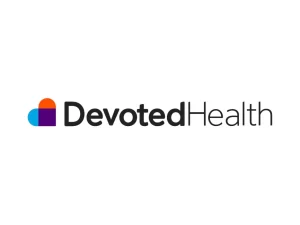
Website: https://www.devoted.com/
While UnitedHealth Group reigns supreme in the health insurance landscape, a new breed of competitor is emerging. Devoted Health, a startup specializing in Medicare Advantage plans, is carving out a niche by focusing on the specific needs of seniors. Unlike UnitedHealth Group’s broad offerings, Devoted Health tailors its plans and services to address the unique challenges faced by older adults. This targeted approach allows them to potentially provide a more personalized and effective healthcare experience.
The competition between Devoted Health and UnitedHealth Group lies in the Medicare Advantage market. Here’s how they stack up:
- Focus: Devoted Health prioritizes senior care with a data-driven approach, aiming to improve health outcomes and reduce costs. UnitedHealth Group offers a wider range of Medicare Advantage plans but may not have the same level of specialization.
- Technology: Devoted Health leverages technology to connect members with care coordinators and resources. While UnitedHealth Group also utilizes technology, Devoted Health’s focus on seniors might lead to a more user-friendly experience for this demographic.
While Devoted Health is a fast-growing company, it’s important to note they currently operate in a limited number of regions compared to UnitedHealth Group’s national presence. Choosing between them depends on your location, eligibility for Devoted Health plans, and your priorities for senior care within a Medicare Advantage program.
| Feature | Devoted Health | UnitedHealth Group |
|---|---|---|
| Target Market | Seniors (Medicare Advantage plans) | Broader market (including Medicare Advantage) |
| Focus | Personalized senior care, data-driven approach | Diverse health insurance plans |
| Strengths | Technology-driven experience, focus on improving health outcomes | National presence, strong financial performance |
2. Advocate Aurora Health
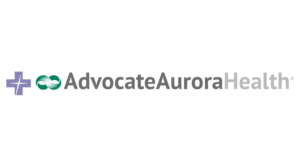
Website : https://www.advocateaurorahealth.org/
Advocate Aurora Health and UnitedHealth Group are not direct competitors in the traditional sense. Advocate Aurora Health functions as a healthcare provider network, operating hospitals and clinics across the country. UnitedHealth Group, on the other hand, is a giant in the health insurance industry.However, there is an indirect competition at play when it comes to attracting and retaining patients.
Here’s how they indirectly compete:
- Network participation: Advocate Aurora Health negotiates with insurance companies, including potentially UnitedHealth Group, to be included in their in-network provider lists. This network access is crucial for UnitedHealth Group members to utilize Advocate Aurora Health’s services without facing higher out-of-network costs.
- Patient experience: Both Advocate Aurora Health and UnitedHealth Group strive to deliver a positive patient experience. Advocate Aurora Health aims to attract patients through high-quality care and facilities, while UnitedHealth Group works to ensure their plans offer members access to a broad network of qualified providers, potentially including Advocate Aurora Health facilities.
The competition between them ultimately benefits patients. Advocate Aurora Health is incentivized to provide excellent care to retain patients and attract new ones. For UnitedHealth Group, negotiating favorable network rates with Advocate Aurora Health helps keep plan costs competitive and member satisfaction high.
| Feature | Advocate Aurora Health | UnitedHealth Group |
|---|---|---|
| Industry | Healthcare Provider Network (hospitals, clinics) | Health Insurance |
| Competition | Negotiates with insurers for in-network status | Competes for healthy members, negotiates provider network rates |
It’s important to note that the competitive landscape can vary depending on the specific market segment (e.g., employer-sponsored plans vs. Medicare Advantage). UnitedHealth faces competition from different players in different areas of its business.
Also Read: Top Chevron Competitors and Alternatives
To read more content like this, subscribe to our newsletter



